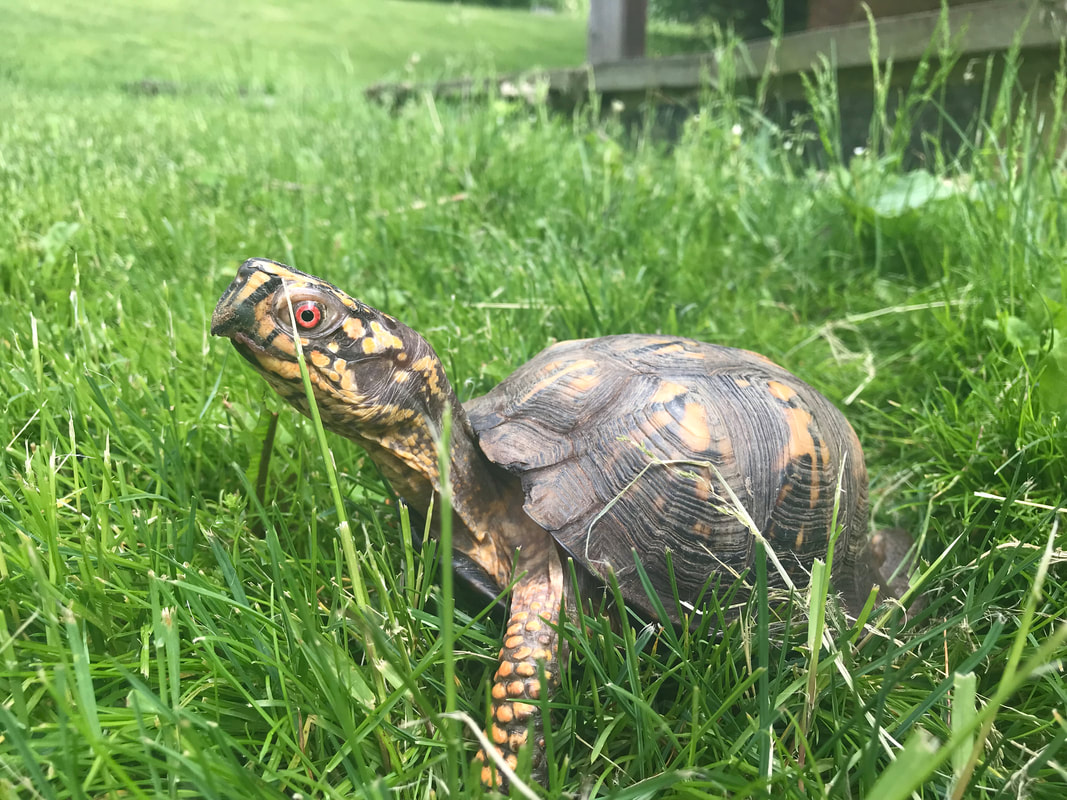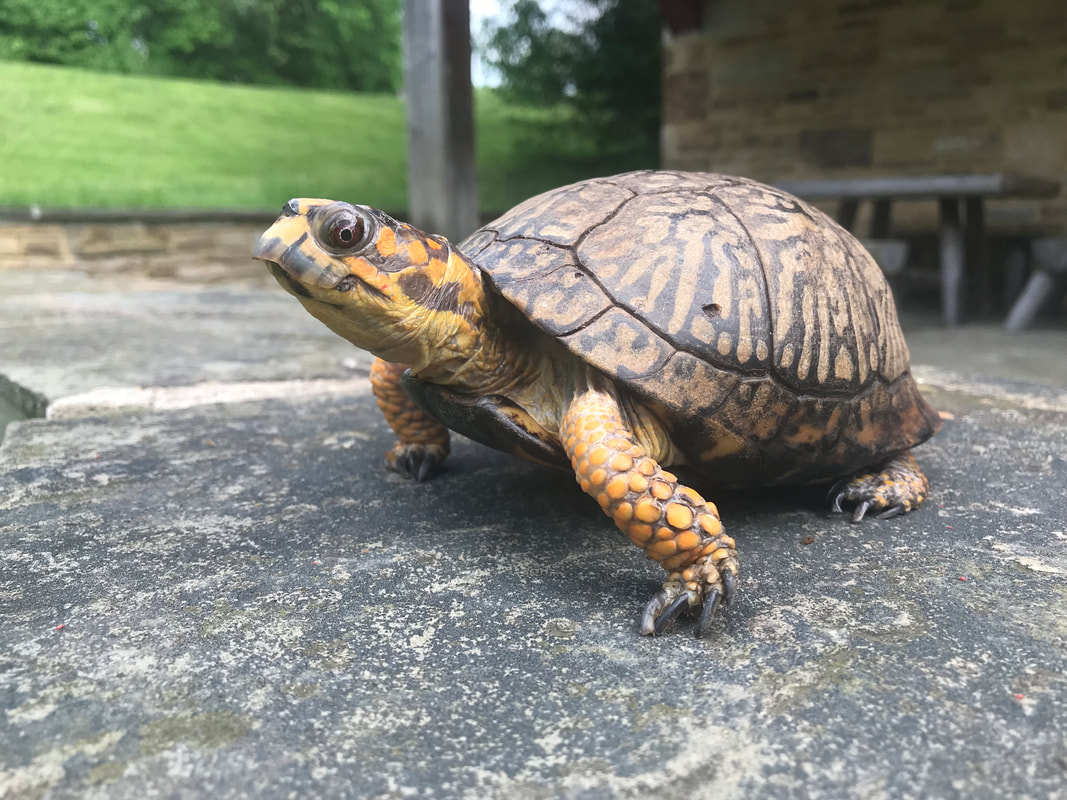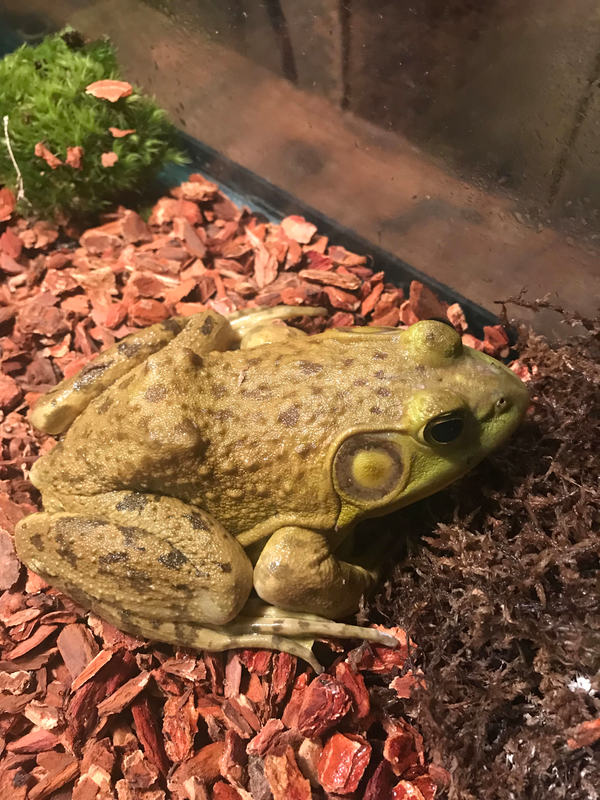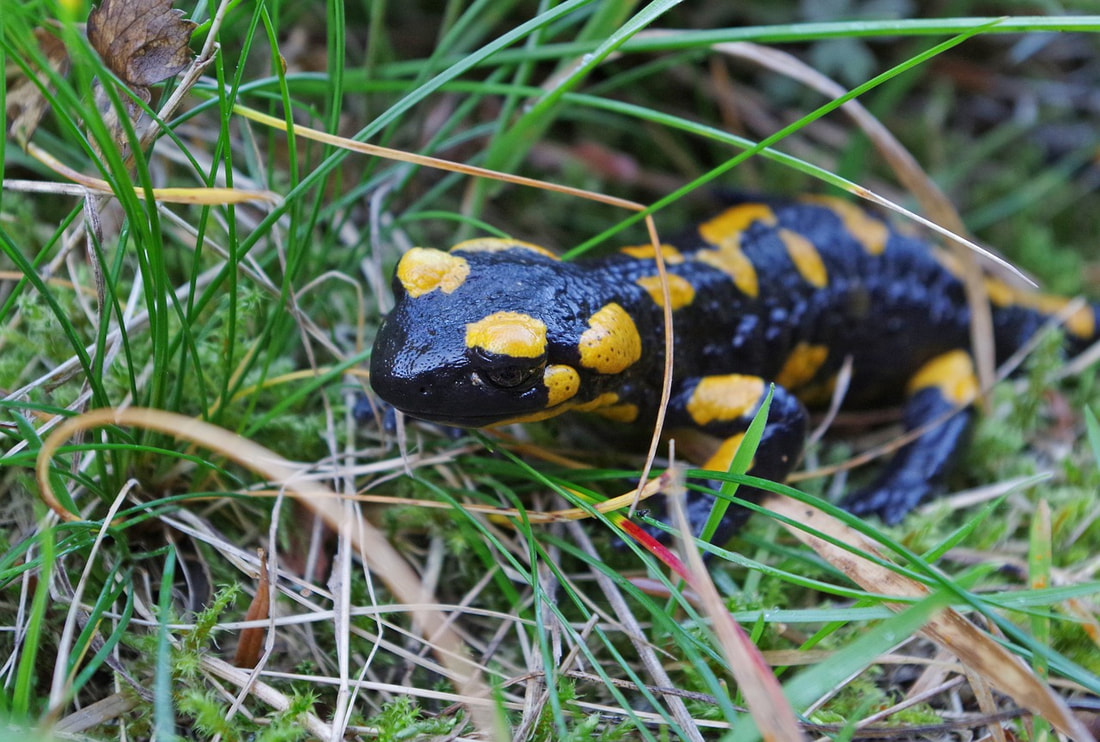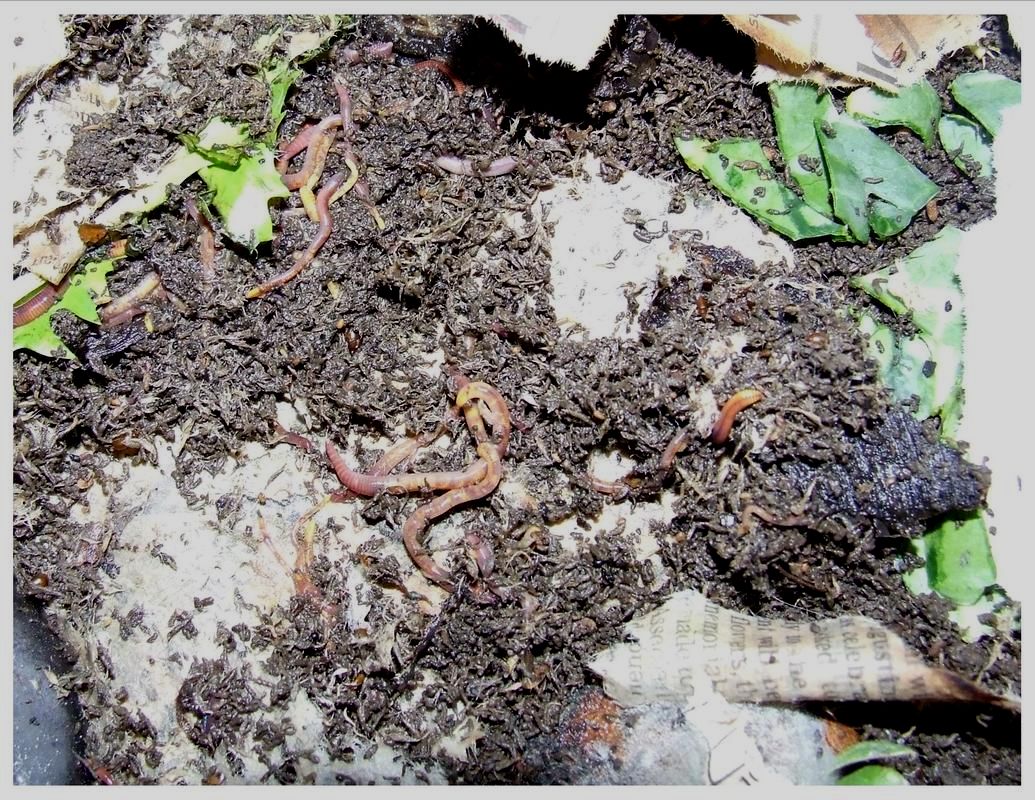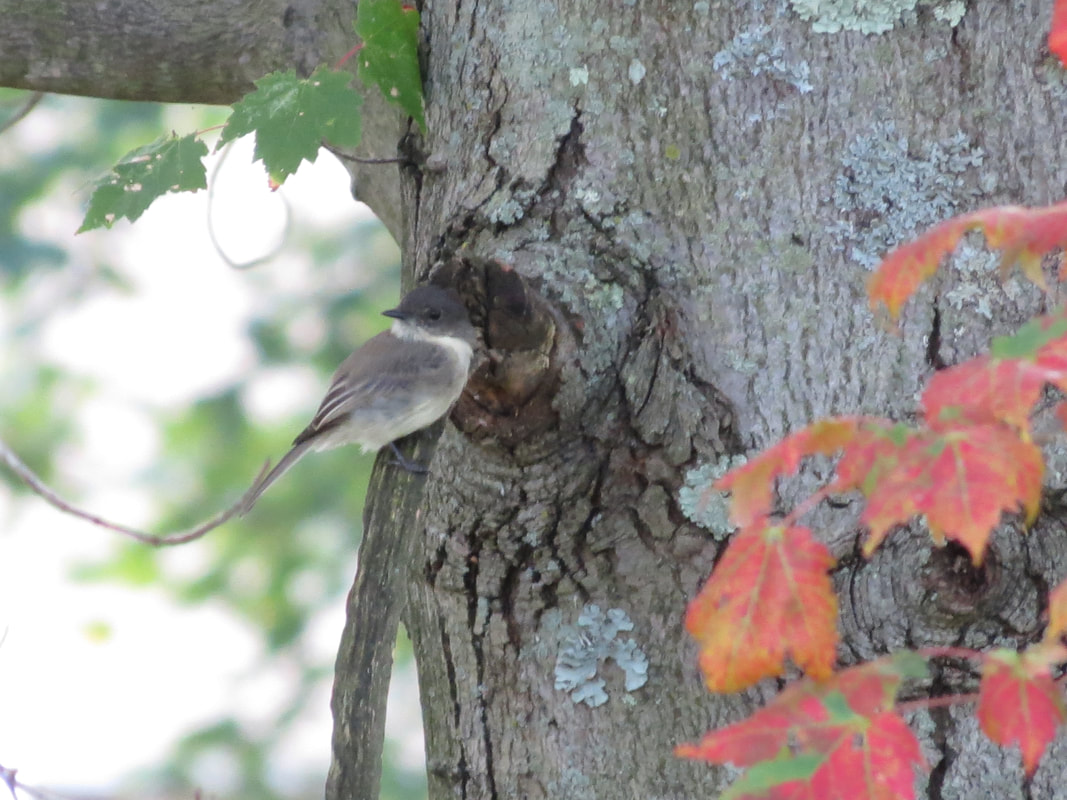|
In addition to all the wild animals that roam the Reserve, we have a number of educational ambassador animals inside the barn where children and adults can interact up close. Jasper and Jasmine, the Eastern Box Turtles, are always out and about. Other not permanent animals are also sometimes on display for programs and events! |
JASPER & JASMINEEASTERN BOX TURTLESJasper and Jasmine are Eastern Box Turtles. Jasper, the male, can be distinguished by his red eyes, a characteristic displayed by all male box turtles. Jasmine is believed to be the older of the two. Although her exact age is not known, she is believed to be quite old. In the wild, box turtles will live approximately 30-40 years. In captivity, however, where they are kept away from predators, are fed regularly and properly, and treated for illnesses, box turtles have been known to live up to 100 years!
Jasper and Jasmine have been with us here at WPNR since we opened in 2007. Confiscated by the U.S. Fish and Wildlife Service from an illegal breeding operation, they were deemed unable to be released into the wild and donated to our organization to be utilized as education animals. Although Eastern Box Turtles are the most common of the Box Turtles, they are listed as ‘vulnerable’. Some ways to help Jasper and Jasmine’s wild counterparts are to leave piles of leaves for potential overwintering habitat (this works for many other types of creatures as well) and generally leaving them be when you see them in the wild. If you happen to see one trying to cross a busy road, the kindest thing to do would be to gently pick them up and move them to the side of the road in which they were traveling. Do not take them back in the other direction as they will simply try to cross again, and don’t travel with them to a new location as you could potentially releasing them in another creature’s territory. |
CJAmerican BULLFROGOur resident bullfrog, CJ, lives a comfortable life as one of our education ambassadors. He arrived at WPNR in September of 2018. Bullfrogs are one of the most common frogs in Pennsylvania and are named for the ‘bull’ like sound that they make, a sound that can often be heard from Croaky on quiet days.
|
RED WORMSHELP US WITH VERMICOMPOSTINGDid you know that we have worms at WPNR? If you’re not aware of them, they’re easy to miss. Ask a staff member about them next time you visit. We love to talk about them! They are part of a vermicomposting bin located in our downstairs classroom area. ‘Vermi’ comes from the Latin word for worm so vermicomposting means to compost with worms. Stop by to get more information on how it works and how to get your own vermicomposting bin!
|
BIRDSSO MANY SPECIES AT OUR FEEDER STATIONSThere are a wide variety of bird species that call the grounds at WPNR home.
Many of the songbirds here are attracted by our series of bird feeders located at the back patio area. Just a few species of birds that can be commonly found at our feeder stations are cardinals, tufted titmice, chickadees, blue jays, robins, sparrows, finches, nuthatches, and various woodpeckers. We’ve also been known to get some orioles and towhees. We’ve even seen a spectacular male pheasant feeding out there! Although the feeders are meant for birds, we do get various other types of creatures out there such as squirrels and chipmunks. Its not at all uncommon to see the back end of a groundhog hanging out of the feeders! |
What To Do If You Find An Injured Animal
The staff at Winnie Palmer Nature Reserve is not equipped or trained to assist with sick or injured wildlife.
Please read the following list of guidelines from the Wildlife Works website when dealing with wildlife that is sick or injured. After reading through the guidelines, if you determine that you need the assistance of a wildlife rehab, you can contact Wildlife Works at (724) 925-6862 or through their website at www.wildlifeworksinc.org.
The following is a list of guidelines that is found on the website for Wildlife Works:
Rescue If:
- The parent is known to be dead, and the baby is too young to be on its own
- The animal is weak, thin, cold, or appears sick.
- The animal is injured in any way; or there are flies, ants, or other insects around the animal.
- The animal is in danger, including problems with other animals, people, or any life-threatening situation.
Leave Alone If:
- The parent is nearby. Parents rarely abandon healthy offspring. It is natural for some species, including rabbits and deer, to leave their young for a few hours while foraging for food.
- The animal is fat, bright-eyed, appears healthy, and isn’t in apparent danger. Parent animals have strong self-preservation instincts. Watch from a distant place. Keep children and animals away so the reunion can take place
Intervene If:
- A nest has been blown from a tree. Pick it up, place it in a berry basket, and tie the basket to a limb of the tree using heavy twine, or place in a crotch of a tree.
- A baby has fallen from the nest. Pick up the baby and return it to the nest. Do not handle the baby a lot since their bones are fragile. Call Wildlife Works for more advice.
Always: Use gloves and caution when handling wildlife. Wild animals normally don’t attack people, but when threatened they will defend themselves. Even small mammals can bite or scratch; birds can peck. Larger species are dangerous.
Never: Never touch raccoons, skunks, bats, woodchucks, or foxes without using gloves. These species could be carriers of rabies. Contact a wildlife rehabber ASAP if you find any of these species in trouble.
After Rescue:
- Place the animal in a secure box equipped with air holes and a lid. Use a box that is the right size – not too large or small. Provide a clean ravel-free cloth for the animal to grasp, and make certain there is nothing inside the box the animal can get caught in. The box should be placed in a warm, dark, and quiet area until transportation is arranged.
- Do not feed or water the animal; good intentions can be fatal to wildlife.
- NEVER house or transport a wild bird in a cage. The wire will damage their feathers.

